Best Santoku Knife
Subcribe to back in stock notification
- Made to Order - This item ships from Italy in limited quantities
Coquus / Santoku Stainless Steel Knife
| For the chef looking for the pinnacle of precision in the kitchen, the award winning Coquus line Santoku from Due Cigni is the only choice. Forged from Damascus steel and reinforced with bronze titanium rivets, the Coquus Santoku knife is meticulously crafted with a design that ensures seamless and effortless precision, particularly when executing the most delicate and thin cuts. It has been specifically engineered to provide complete control and mastery over your culinary endeavors. In addition to its exceptional performance, the Coquus Santoku stands out with its ergonomic natural Oak wood handle that offers an unparalleled level of comfort, enabling you to seamlessly navigate through intricate kitchen tasks with ease and grace. This combination of outstanding blade design and meticulously carved handle makes the Coquus Santoku the epitome of precision and finesse in any culinary setting. |
Blade Steel: stainless steel 4116 X50CrMoV15
Hardness: HRC 59-61
Blade Coating: satin
Handle: Smoked oak
Rivets: stainless steel
Bolsters: Stainless Steel
Blade Length: 18 cm - 7.09"
Overall Length: 32 cm - 12.60"
Blade Thickness: 3 mm - 0.12"
Weight: 192 gr - 6.77 oz
Dishwasher safe: no
FAQs
What is a good santoku knife?
Consider factors such as the type of steel used in the blade, the construction of the handle, balance, and overall design. Additionally, it's essential to keep in mind your own preferences for weight, size, and style. Before making a purchase, if possible, try handling the knife to see how it feels in your hand.
Click To Read All FAQS
What do I cut with a Santoku knife?
A Santoku knife is a versatile kitchen tool that is well-suited for a variety of cutting tasks. The word "Santoku" translates to "three virtues" or "three uses" in Japanese, indicating its proficiency in handling three types of cuts: slicing, dicing, and chopping. It's important to note that Santoku knives are not designed for heavy-duty tasks like breaking down poultry or cutting through bones.
Do professional chefs use santoku knives?
Yes, professional chefs do use Santoku knives, but the choice of knives varies among chefs based on personal preferences, the type of cuisine they specialize in, and the specific tasks they perform in the kitchen. Professional chefs typically use a variety of knives in their kitchens, each serving a specific purpose. While a Santoku knife may be a favorite for certain tasks, chefs often complement it with other knives such as chef's knives, paring knives, and specialized knives for specific purposes.
How to choose a santoku knife?
Choosing the right Santoku knife involves considering various factors to ensure it meets your specific preferences and needs. Here are some key factors to consider when selecting a Santoku knife: blade material, blade length, blade shape, handle design, tang, balance, sharpness, brand and reputation, maintenance, budget, and purpose.
Do you really need a Santoku knife?
Whether you "really need" a Santoku knife depends on your personal cooking habits, preferences, and the types of tasks you frequently perform in the kitchen. While a Santoku knife is a versatile and popular choice, it's not necessarily a must-have for everyone. If a Santoku knife aligns with your needs and enhances your cooking experience, it can be a worthwhile addition to your kitchen toolkit.
What size Santoku knife is best?
The best size for a Santoku knife depends on your personal preferences, the size of your hands, and the specific tasks you plan to use the knife for. Santoku knives typically come in blade lengths ranging from 5 to 7 inches, with 6 to 7 inches being the most common.
Why are Santoku knives so popular?
Santoku knives have gained popularity for their versatile design, excelling in slicing, dicing, and chopping tasks. With a shorter length than traditional chef's knives, they provide increased control and maneuverability. The flat cutting edge and slightly curved belly allow for efficient rocking motions. The Japanese origin of Santoku knives, coupled with their sharpness and ergonomic handles, appeals to bofth professional chefs and home cooks, making them a widely favored and versatile kitchen tool.
Can you sharpen a santoku knife?
Yes, you can sharpen a Santoku knife. Use a sharpening stone or honing rod, following the knife's original edge angle. Draw the blade across the stone or rod at a consistent angle, maintaining a steady motion. Repeat on both sides until the edge is sharp. Some Santoku knives may benefit from professional sharpening services for optimal results. Regular maintenance ensures the knife stays sharp and effective.
What are the three virtues of a santoku knife?
The three virtues of a santoku knife are versatility, precision, and balance. Versatility for handling multiple tasks like slicing, dicing, and mincing; precision for accurate, thin cuts; and balance for comfortable, controlled use, reducing hand fatigue. Ideal for both professional chefs and home cooks.
Can you use a Santoku knife for everything?
A santoku knife is highly versatile but not suited for every task. It excels in slicing, dicing, and mincing but may be better for heavy-duty tasks like cutting through bones. It's best used alongside other specialized knives for a complete kitchen toolkit.
How do I keep my Santoku knife sharp?
To keep your santoku knife sharp, regularly hone with a rod and sharpen using a whetstone as needed. Avoid dishwashers, cut on soft surfaces like wood or plastic, and store properly in a knife block or sheath to maintain its edge.
Should I buy a santoku or chef knife?
Choosing between a santoku and a chef knife depends on your cooking style and needs. Santoku knives, with their shorter and thinner blades, are excellent for precise, thin slicing and suit smaller hands. Chef knives, typically longer and more curved, are versatile for various cutting techniques like chopping and mincing. Consider the type of food you frequently prepare and your comfort with knife handling to make the best choice.
Why do Santoku knives have grooves?
Santoku knives often feature grooves, also known as "Granton edges," on the blade. These grooves serve a specific purpose: they create air pockets between the blade and the food being cut. This design reduces friction and prevents food from sticking to the blade. It's especially useful when slicing wet or sticky foods like cheese, meats, and certain vegetables. The reduced sticking improves the ease and efficiency of slicing, making the santoku knife even more versatile and user-friendly in the kitchen.
Can you use a Santoku knife to cut vegetables?
Absolutely, a santoku knife is ideal for cutting vegetables. Its sharp, thin blade excels at precise, clean cuts, making it perfect for slicing, dicing, and mincing vegetables of all types. The wide blade assists in scooping up chopped veggies for transfer. Its design, incorporating a balanced weight and often a Granton edge, reduces sticking, ensuring smooth, efficient vegetable preparation. It's a favored choice in kitchens for its versatility and ease with vegetable-cutting tasks.
Is a Santoku knife a butcher knife?
No, a Santoku knife is not a butcher knife. While both are kitchen knives, they serve different purposes. A santoku knife, originating from Japan, is designed for general kitchen tasks like slicing, dicing, and mincing, particularly suited for vegetables, fish, and meat. A butcher knife, on the other hand, is heavier and larger, specifically crafted for breaking down larger cuts of meat and cutting through tougher materials like bones and cartilage.
Blade Steel: stainless steel 4116 X50CrMoV15
Hardness: HRC 55-57
Blade Coating: satin
Handle: black POM
Rivets: stainless steel
Blade Length: 18 cm – 7.09″
Overall Length: 30 cm – 11.81″
Blade Thickness: 2 mm – 0.08″
SHIPPING
Most orders will be processed within one business day (we make sure our employees take Saturday and Sunday off, so if you order late Friday or over the weekend, we will process your order on Monday). When your order leaves our warehouse in Seattle, Washington, you will receive an email with your tracking number. Add 3 to 5 business days for delivery. Please note that we only ship within the United States.
RETURNS POLICY
We take pride in our workmanship and stand behind our products, which is why we accept returns within the first 30 days from the day your items arrive.
Collections
Products
Blogs





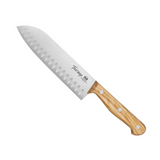
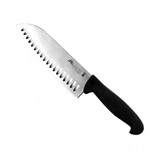
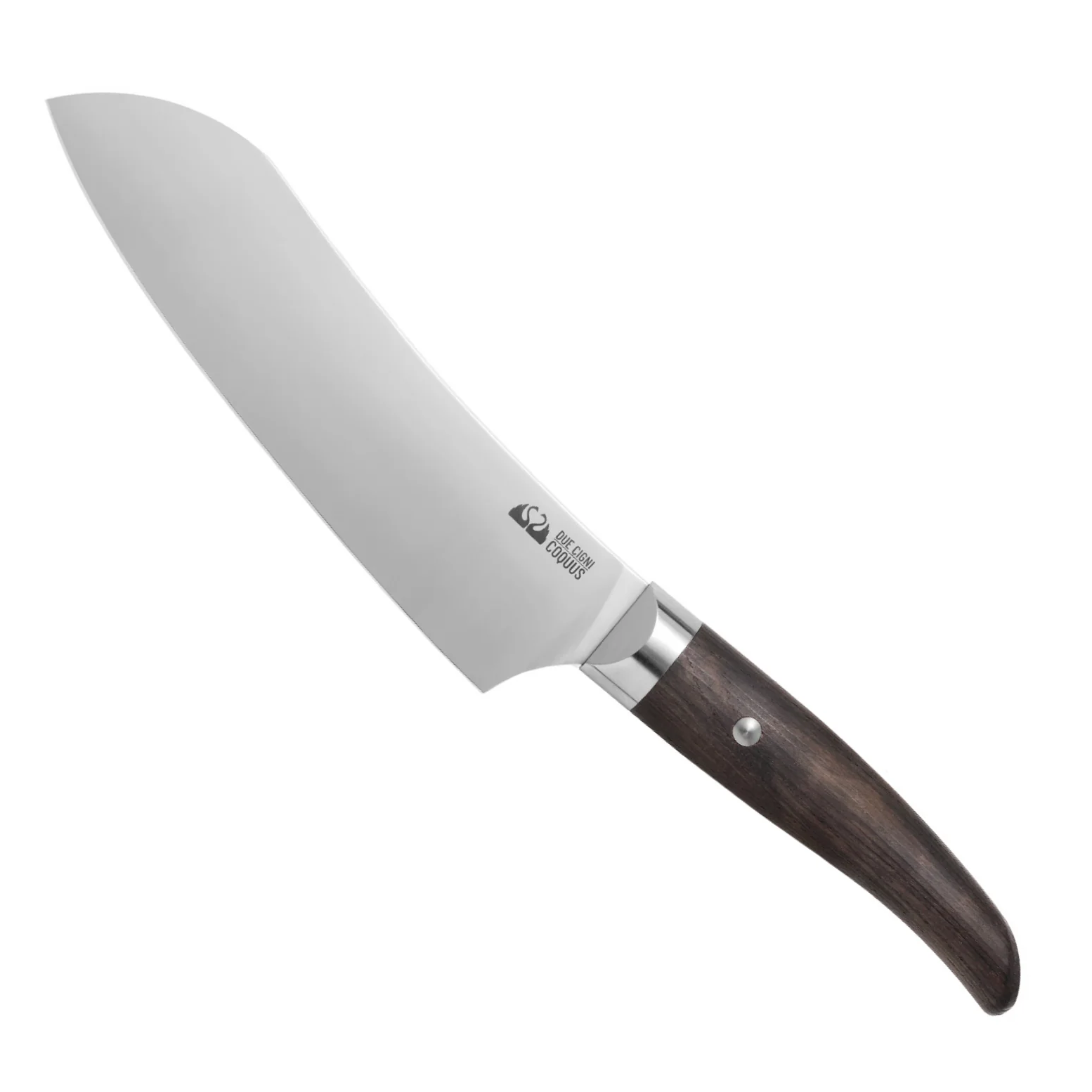 Best Santoku Knife
Best Santoku Knife
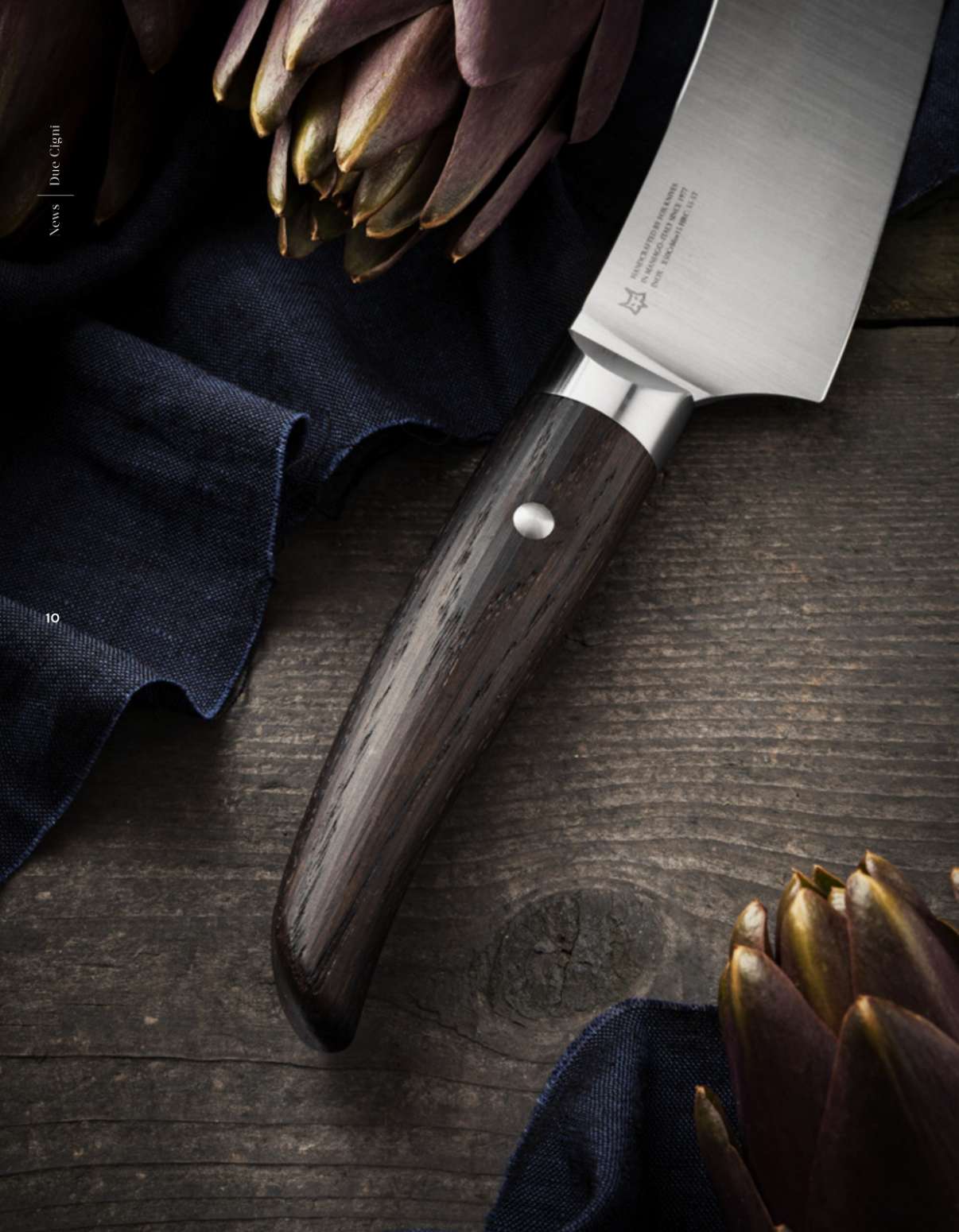 Best Santoku Knife
Best Santoku Knife
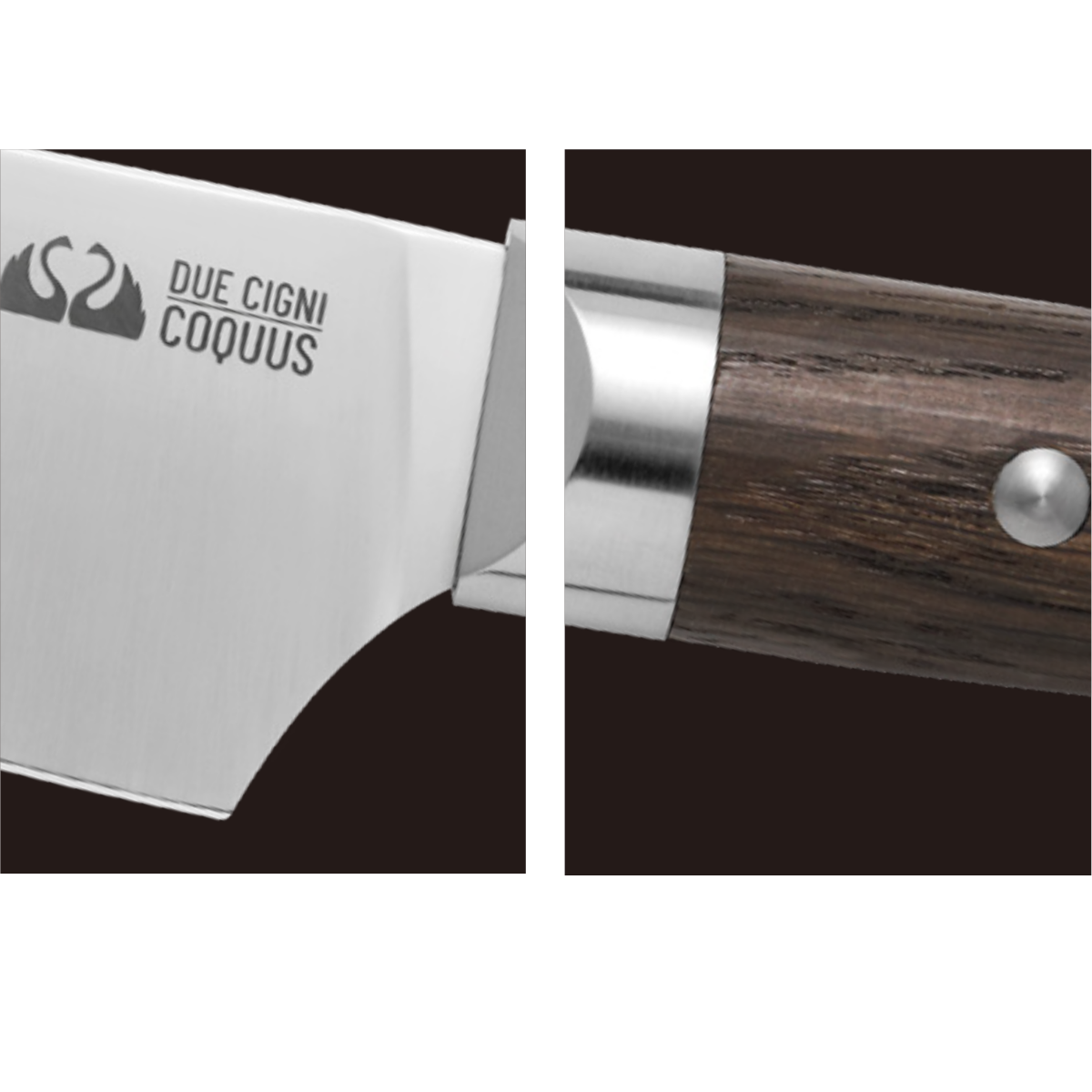 Best Santoku Knife
Best Santoku Knife
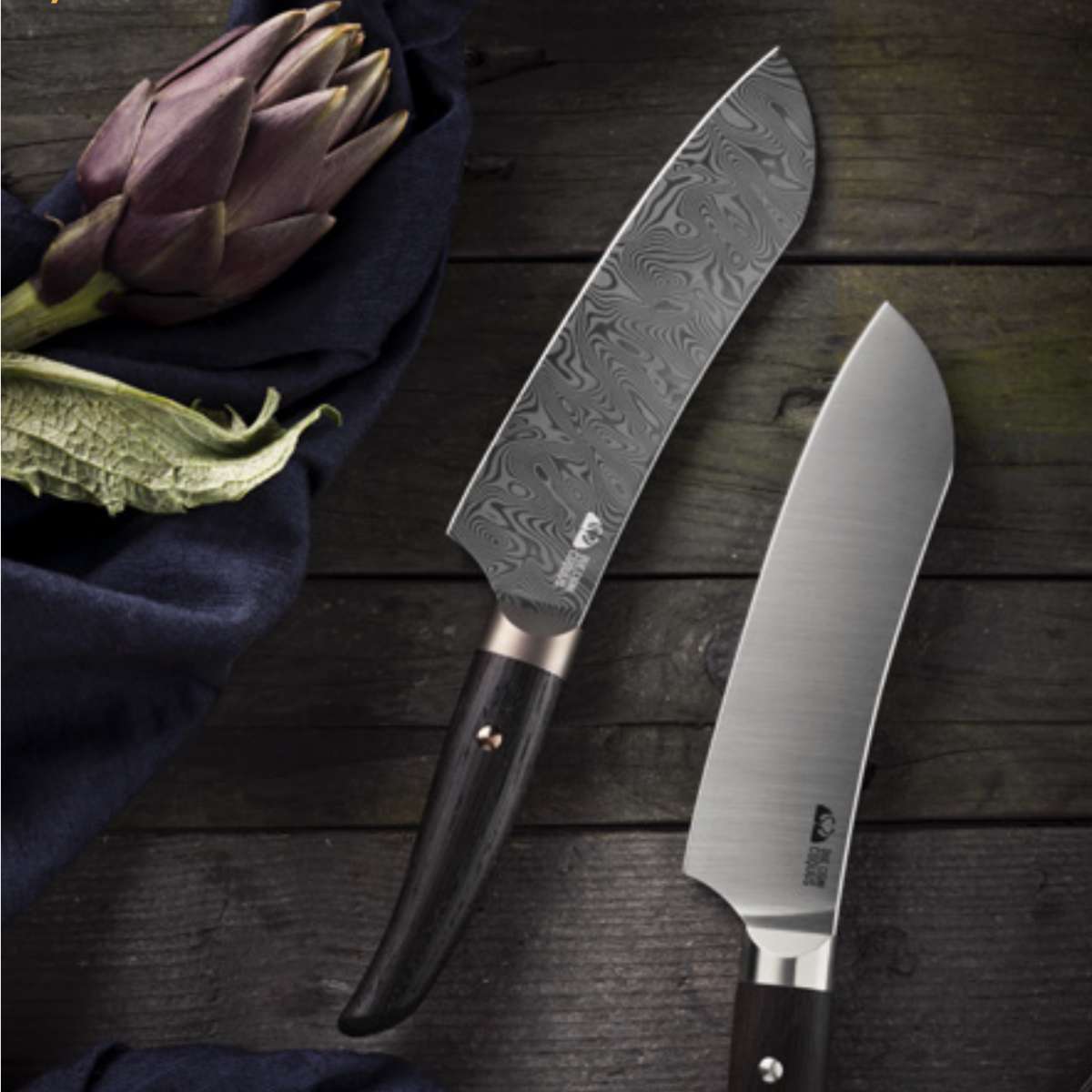 Best Santoku Knife
Best Santoku Knife
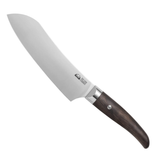
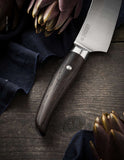
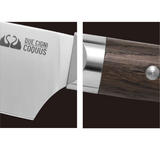
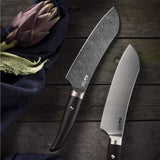
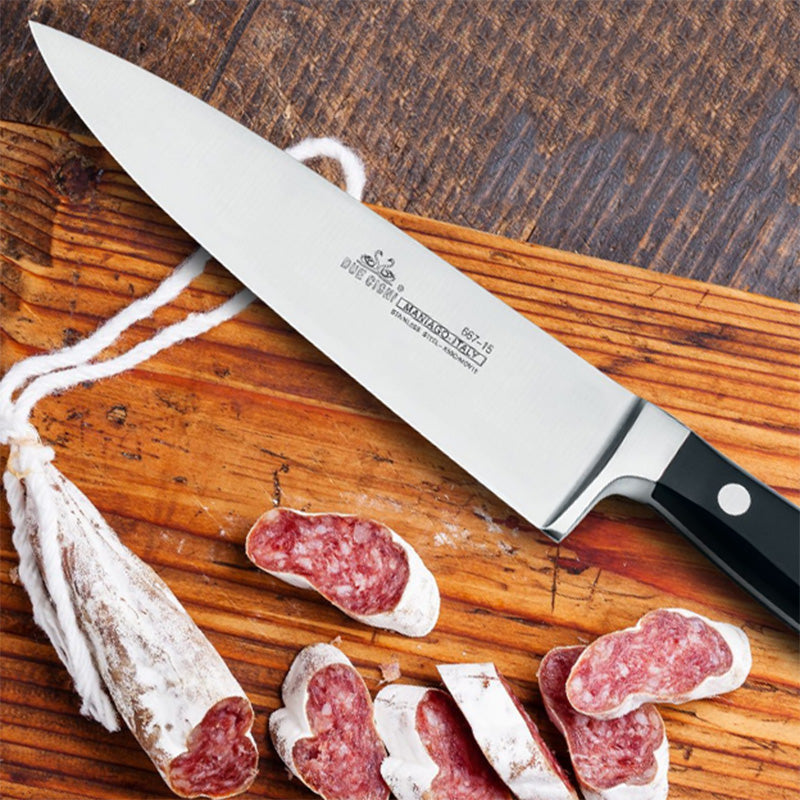 DueCigni Cutlery
DueCigni Cutlery

 DueCigni Cutlery
DueCigni Cutlery